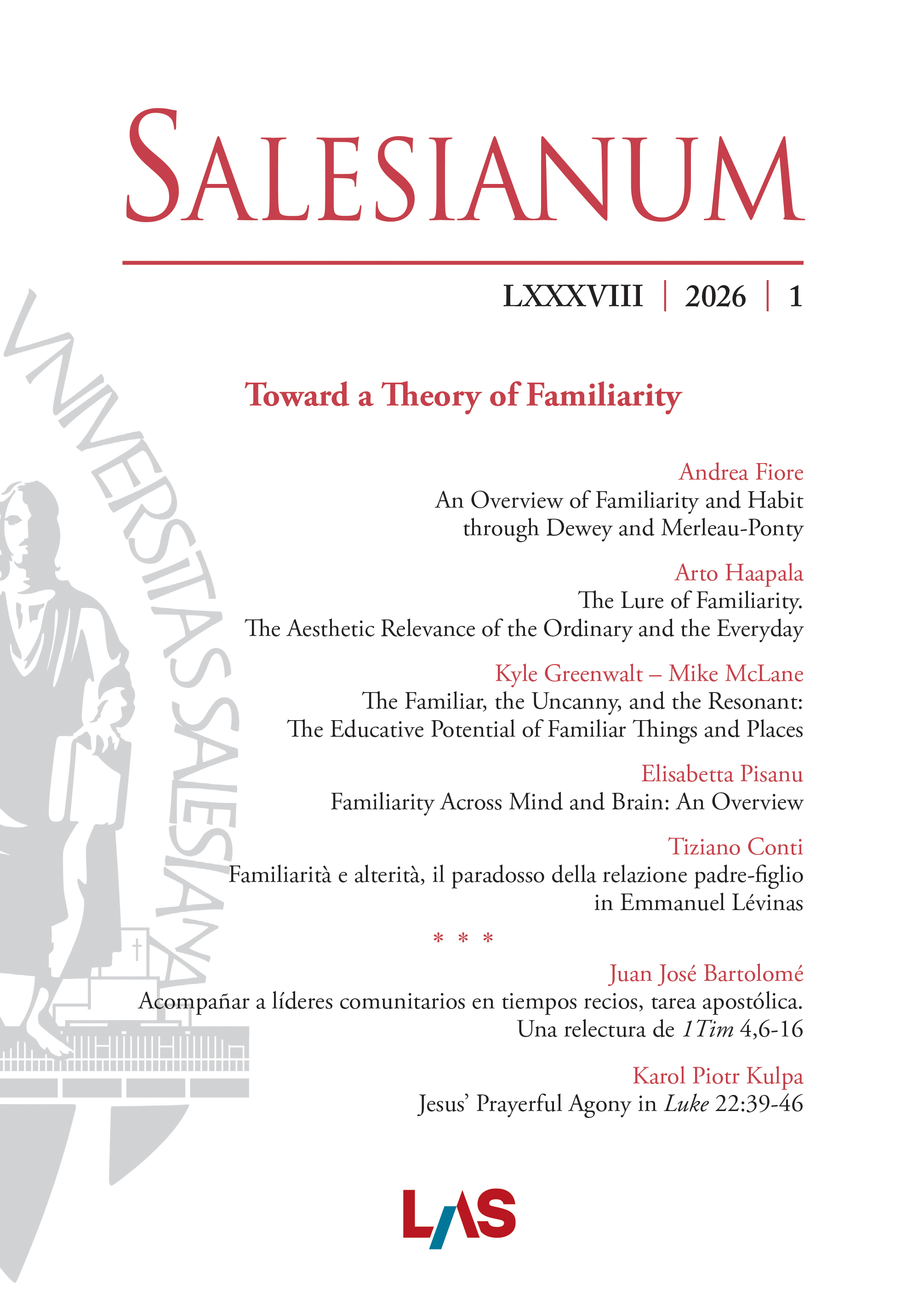Il dibattito strutturato. Epoca antica e medievale
The Structured Debate: Ancient and Medieval Era
Salesianum vol. 87 (2025) n. 4, 702-731Sezione: Studia
Sommario
Il saggio ripercorre le principali tappe dello sviluppo del dibattito strutturato (debate): dalle prime forme di discussione con regole precise tra due interlocutori fino ad Aristotele e ai Topici, il cui ottavo libro può essere considerato un vero manuale di dibattito strutturato. A partire da Aristotele si sviluppa un’ampia e articolata tradizione, arricchita dai contributi di diversi autori e contesti culturali. Il saggio si sofferma su alcune tappe significative di questa evoluzione: Cicerone, la tradizione teologica tardo-antica, Boezio, il Medioevo. È in quest’ultimo periodo, soprattutto in seno all’università, che il dibattito strutturato, nella forma della quaestio disputata, raggiunge la sua massima e completa espressione con una centralità per la didattica e la ricerca scientifica senza precedenti.
Parole chiave
Dibattito strutturato | Filosofia antica | Aristotele | Quaestio | Disputatio
Abstract
The essay traces the main stages in the development of structured debate, from the earliest forms of discussion with precise rules between two interlocutors to Aristotle and the Topics, whose eighth book can be considered a true manual of structured debate. Starting with Aristotle, a broad and complex tradition emerges, enriched by contributions from various authors and cultural contexts. The essay focuses on some significant milestones in this tradition: Cicero, the late antique theological tradition, Boethius, and the Middle Ages. It is during this latter period, especially within the university setting, that structured debate, in the form of the quaestio disputata, reaches its fullest expression and assumes an unprecedented central role in education and scientific research.
Keywords
Debate | Ancient philosophy | Aristotle | Quaestio | Disputatio
